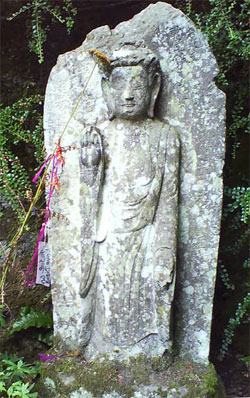January 27 Compassionate Living Tip from Interfaith Paths to Peace
Embrace the Practice of Lovingkindness
http://buddhismnow.wordpress.com/2013/01/18/the-development-of-loving-kindness/
 “Bhikkhus, whatever grounds there are for making merit productive of a future birth,[i] all these do not equal a sixteenth part of the mind-release of loving-kindness.[ii] The mind-release of loving-kindness surpasses them and shines forth, bright and brilliant.
“Bhikkhus, whatever grounds there are for making merit productive of a future birth,[i] all these do not equal a sixteenth part of the mind-release of loving-kindness.[ii] The mind-release of loving-kindness surpasses them and shines forth, bright and brilliant.
Embrace the Practice of Lovingkindness
http://buddhismnow.wordpress.com/2013/01/18/the-development-of-loving-kindness/
This was said by the Lord.
 “Bhikkhus, whatever grounds there are for making merit productive of a future birth,[i] all these do not equal a sixteenth part of the mind-release of loving-kindness.[ii] The mind-release of loving-kindness surpasses them and shines forth, bright and brilliant.
“Bhikkhus, whatever grounds there are for making merit productive of a future birth,[i] all these do not equal a sixteenth part of the mind-release of loving-kindness.[ii] The mind-release of loving-kindness surpasses them and shines forth, bright and brilliant.
“Just as the radiance of all the stars does not equal a sixteenth part of the moon’s radiance, but the moon’s radiance surpasses them and shines forth, bright and brilliant, even so, whatever grounds there are for making merit productive of a future birth, all these do not equal a sixteenth part of the mind-release of loving-kindness.
“Just as in the last month of the rainy season, in the autumn, when the sky is clear and free of clouds, the sun, on ascending, dispels the darkness of space and shines forth, bright and brilliant, even so, whatever grounds there are for making merit productive of a future birth, all these do not equal a sixteenth part of the mind-release of loving-kindness….
“And just as in the night, at the moment of dawn, the morning star shines forth, bright and brilliant, even so, whatever grounds there are for making merit productive of a future birth, all these do not equal a sixteenth part of the mind-release of loving-kindness. The mind-release of loving-kindness surpasses them and shines forth, bright and brilliant.”
For one who mindfully develops
Boundless loving-kindness
Seeing the destruction of clinging,
The fetters are worn away.
If with an uncorrupted mind
He pervades just one being
With loving kindly thoughts,
He makes some merit thereby.
But a noble one produces
An abundance of merit
By having a compassionate mind
Towards all living beings.[iii]
Those royal seers who conquered
The earth crowded with beings
Went about performing sacrifices:
The horse sacrifice, the man sacrifice,
The water rites, the soma sacrifice,
And that called “the Unobstructed.”[iv]
But these do not share even a sixteenth part
0f a well cultivated mind of love,
Just as the entire starry host
Is dimmed by the moon’s radiance.
One who does not kill
Nor cause others to kill,
Who does not conquer
Nor cause others to conquer,
Kindly towards all beings— He has enmity for none
Published with thanks from The Udana &The Itivuttaka Translated by John D. Ireland. Buddhist Publication Society 1997. Buddhism Now November 2001
[i] The “three grounds for making merit” (punnakiriya-vatthu) are giving, virtue, and mind-development; see Sutta 60. Comy. glosses “productive of a future birth”(opadhikani) as meaning productive of a successful individual existence, yielding results at conception and during life. The term is contrasted with grounds for making merit aimed at release from future birth, such as by developing insight.
[ii] Mind—release (cetovimutti) is the culmination of the mind’s purgation of emotional impurities by the practice of tranquillity (samatha). There are various kinds of mind-release, and although they are very exalted, the only one that is irreversible is the unshakeable mind-release (akuppa cetovimutti) possessed by an arahant. The practice of loving-kindness, the first of the four divine abidings, culminates in the boundless mind-release (appamana cetovimutti) in which all ill will or malice (vyapada) is removed from the mind.
[iii] It is by being practised towards all beings equally and without exception, not just towards one person, that loving-kindness becomes boundless and the basis for mind-release.
[iv] This refers to the legendary kings of the past who ruled righteously and made sacrifices to the gods and gave abundant alms to the needy after their victories. Later they abdicated to become seers (isi), hermits or holy men, and then went to heaven. The sacrifices are mentioned at Snp. 303 as having been initiated by corrupt brahmins desirous of accumulating wealth. Soma is the sacrificial drink offered in libations to the gods.
No comments:
Post a Comment